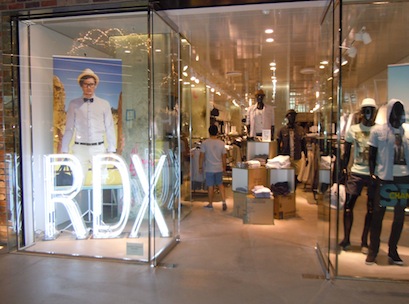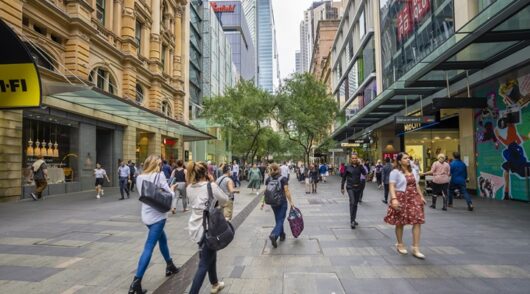 Australia’s third-largest menswear retailer Roger David has confirmed that after 76 years it will close its doors for the final time on Sunday, December 2, and has marked down all remaining new season stock to 70 per cent to clear.
Australia’s third-largest menswear retailer Roger David has confirmed that after 76 years it will close its doors for the final time on Sunday, December 2, and has marked down all remaining new season stock to 70 per cent to clear.
KordaMentha Restructuring administrator Craig Shepard urged Roger David customers to get a great bargain before Christmas, helping the business to clear out the last of its stock and provide cash to pay employees their entitlements.
Five hundred full-time, part-time and casual staff across 57 stores in all states will be affected by the closure. Shepard said the team members have shown tremendous loyalty to the retailer in their dedication to work in recent weeks, even as the retailer’s fate hung in the balance.
Despite some initial interest, administrators were unable to find a buyer. Roger David cited competition from global players, online retailers and the rising cost of operating bricks-and-mortar locations as causing its downfall.
A brief surge in sales occurred only after the retailer filed for administration in October and significantly marked down stock.
Learning from mistakes
The fashion industry has become increasingly dominated by retailers in the fast-fashion category, with brands such as Zara, H&M and Uniqlo pushing older, slower models aside.
“[These retailers] have sophisticated, vertically integrated supply chains, which allows them to quickly adapt to changing consumer demand and fashion trends,” IBISWorld’s senior industry analyst Kim Do said.
“This allows them to appeal to both fashion-conscious and price-sensitive consumers.”
The growing millennial market is typically drawn to online fashion marketplaces, such as ASOS and The Iconic, which offer more convenience and often lower prices than traditional players, such as Roger David.
“Online stores generally have lower overheads compared with their bricks-and-mortar counterparts and can, therefore, offer consumers more competitive prices,” Do said.
Roger David in particular struggled to respond to market polarisation trends or ‘right-size’ its store network, which left it susceptible to the rising cost of rent.
Do expects more stores to shrink their footprint over the next five years in response to the changing retail landscape.
“Retailers are being a lot more careful about their store locations and will only require a couple of good strategically located stores while conducting the majority of their business online,” Do said.
Access exclusive analysis, locked news and reports with Inside Retail Weekly. Subscribe today and get our premium print publication delivered to your door every week.





